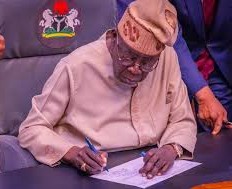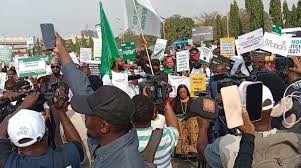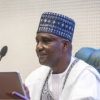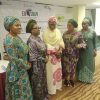With Nigeria’s 2027 elections on the horizon, key issues like insecurity, unemployment, and the economy are in focus. However, climate change, though crucial and interconnected with other challenges, remains largely ignored in public debate. For a long time, climate change has been an abstract global debate that is detached from the everyday struggles of the
With Nigeria’s 2027 elections on the horizon, key issues like insecurity, unemployment, and the economy are in focus. However, climate change, though crucial and interconnected with other challenges, remains largely ignored in public debate.
For a long time, climate change has been an abstract global debate that is detached from the everyday struggles of the average Nigerian. However, the truth is that this reality is shaping the lives and livelihoods of many Nigerians, including those in rural areas.
From flooding that displaces communities in some parts of the country, to the farmer-herder clash and conflict mostly caused by desertification, to rising heatwaves and prolonged rainy seasons that have left many to mould infestation in homes. Climate change is beyond an environmental challenge; it is a development emergency.
Why Climate Change Must Enter Nigeria’s Political Debate
The 2027 elections are a critical opportunity to put climate change at the heart of
Nigeria’s democratic process. Politicians need to be tasked with navigating a nation where climate impacts are costing Africa an estimated 5% of GDP annually.
Energy access, food security, health, infrastructure, and national security all have
climate dimensions; therefore, a candidate’s take on renewable energy, agricultural adaptation, and climate finance should be important as their stand on security or economic reform. Without integrating climate policy into governance, promises of economic transformation do not hold much value.
In an interview with Prof. Magnus C. Onuoha, Executive Director of the West Africa Green Economic Development Institute (WAGEDI), at the Africa Climate Summit in Addis Ababa, Ethiopia, Prof Onuoha stressed that “climate change is no longer fallacious, it’s real, and it threatens everybody.” He noted that political parties and governments must not only acknowledge this reality but also actively disseminate information that reinforces its urgency. According to him, beyond the negative impacts lie abundant opportunities in green innovation, and he urged political parties and other advocacy groups to establish climate action desks to mobilise their members towards solutions.
The Role of the Media as Agenda-Setters
This is where the media must rise. As media professionals, we are agenda-setters, and the questions we ask during debates will shape what the candidates eventually take seriously.
Imagine if every political debate in 2027 included a segment on climate change. Questions such as:
- How do you plan to address recurring floods that destroy lives and infrastructure?
- What is your strategy for transitioning Nigeria to cleaner, affordable energy?
- How will you support farmers who are facing erratic rainfall and declining yields?
- What role will Nigeria play in global climate negotiations?
When questions are asked repeatedly, candidates and parties will pay attention and prepare coherent climate policies.
Media as a Bridge Between Citizens and Policy
At the Africa Climate Summit in Addis Ababa, leaders stated that integrating climate action into all areas of governance is necessary, rather than addressing it separately. For Nigeria, this suggests that the media can encourage candidates and parties to include climate-related commitments in their manifestos as part of the country’s democratic process.
Beyond questioning candidates, the media must also translate climate science and policy into language that ordinary Nigerians can relate to. When climate change is explained through the lens of food prices in the market, electricity in homes, or jobs for young people, it becomes an election issue. As a climate communicator, I have seen how storytelling can close the gap between abstract policy and lived realities. Radio programs, investigative reporting, digital campaigns, and community media are powerful tools to make climate part of everyday political discourse.
Why This Matters for 2027 and Beyond
Nigeria’s democratic future and climate future are deeply related. If leaders elected in 2027 do not prioritise climate resilience, we risk reversing decades of development gains. On the other hand, if the media ensures climate change becomes an election issue, Nigeria can position itself as a leader in Africa’s green transition.
The stakes are high because climate change is not waiting for our politics to catch up. As the countdown to 2027 begins, the media must act with urgency and courage, placing climate change where it belongs: at the centre of Nigeria’s political debate.


















